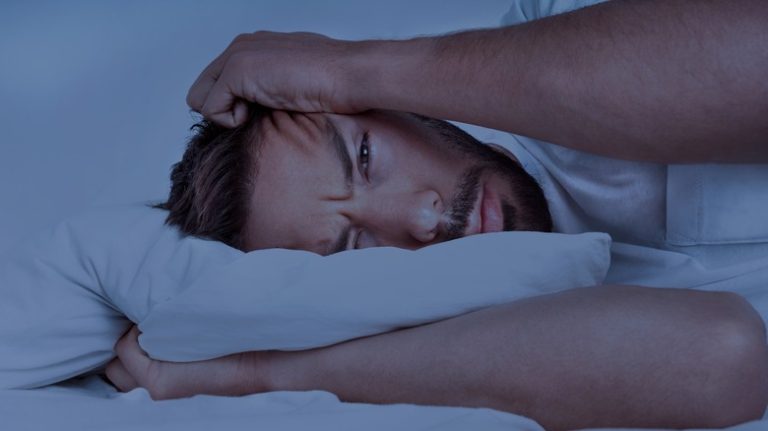Talking in your sleep, also called somniloquy, is often portrayed as humorous or frightening in the movies. Although more common among children, adults talk in their sleep too. If you live alone, it might be difficult to know whether you talk in your sleep, since you likely won’t have any recollection of the experience when you wake up.
If you’ve ever had a partner who turned to you in the middle of the night and mumbled out a stream of gibberish, you may have laughed it off, rolled over, and fallen back asleep. Or perhaps your significant other incessantly chatters every single night and your last reaction in the world is mild amusement. You might be sleep-deprived and irritated instead. Sleep talking can take the form of short bursts of nonsensical words, long soliloquies, or even full-on conversations. The person might whisper, sound different than they usually do, and in some cases, it might sound like they’re acting out a dream or violent experience.
More often than not, sleep talking is actually harmless. But the one time it shouldn’t be ignored is if it were indicative of a more serious health condition, like obstructive sleep apnea. While health professionals aren’t exactly sure of the real reason people talk in their sleep, there is some association with obstructive sleep apnea and parasomnias like sleep talking. Parasomnias refer to absurd or disruptive behaviors that occur when someone is asleep. Sleepwalking, sleep eating, sleep terrors, and sleep paralysis are also examples of parasomnias.
What is obstructive sleep apnea?
Obstructive Sleep Apnea #OSA #obstructivesleepapnea #health #wellness #fitness #snoring
♬ original sound – Mike Muellner, MD
Obstructive sleep apnea (OSA) is a chronic breathing disorder where you don’t get enough air into your lungs when you sleep. This causes your brain to wake you up. People with OSA may wake up in the middle of the night gasping for air. This can happen multiple times per night. The repeated stop and start of breathing while asleep may also be accompanied by other symptoms like sleep talking, teeth grinding, night sweats, chronic snoring, and a racing heart rate at night (per Verywell Health). It is possible that someone with the breathing disorder may not exhibit all of the warning signs.
A person living with OSA may also feel irritable, fatigued, and sleepy during the day. This might be coupled with feelings of depression, difficulty concentrating and/or learning anything, and memory issues. Being obese, having a deviated septum or another anomaly like a narrower airway, nasal congestion, smoking, genetics, aging, use of alcohol or certain medications, and conditions like polycystic ovary syndrome, type 2 diabetes, and high blood pressure can put you at risk for developing OSA.
Diagnosing OSA might involve a sleep test. Treatments might vary from lifestyle changes like losing weight to using various breathing machines like the continuous positive airway pressure (CPAP) machine. In some cases, surgery to remove an obstruction might be necessary, according to Everyday Health. However, OSA isn’t the only serious health condition sleep talking could be a warning sign of.
Sleep talking can also be a sign of post-traumatic stress disorder and REM sleep behavior disorder

Although an upsetting event brings on post-traumatic stress disorder (PTSD) in the first place, the lingering symptoms of the condition include sleep problems like sleep talking, insomnia, and nightmares. Therapy, medication, and treating other associated mental health conditions like anxiety or depression are usually the way to get to the underlying condition.
With the other serious health condition, REM sleep behavior disorder (RSBD), sleep talking often takes on a violent or animated nature. Someone with RSBD might swear, act out, shout, punch, kick, or perform other aggressive actions whilst asleep, according to Cleveland Clinic. Much like with OSA, diagnosing RSBD might involve a sleep test. Doctors may also want to do CT or MRI scans to assess neurologic problems.
Ultimately, sleep talking isn’t something to be worried about unless it occurs consistently and is disrupting you or your partner’s sleep. As explained by sleep specialist Michelle Drerup (via Cleveland Clinic), “If your sleep talking occurs suddenly as an adult, or if it involves intense fear, screaming or violent actions, you should consider seeing a sleep specialist.” You may be tempted to write it off as one of those strange things you do when you’re asleep, but it could be indicative of a more serious health condition — one that would require a different approach than laughing it off.



